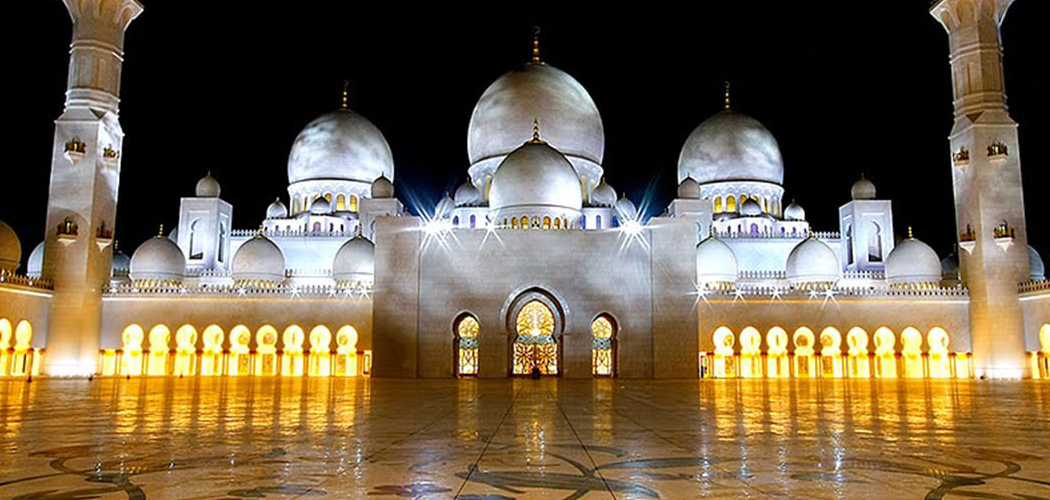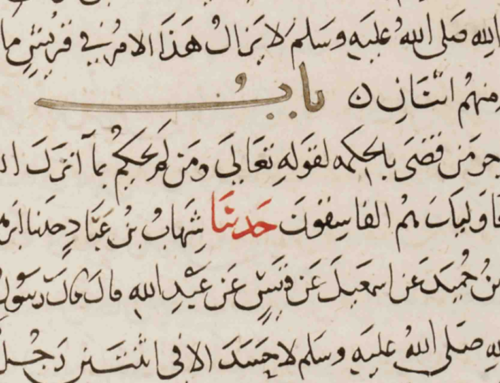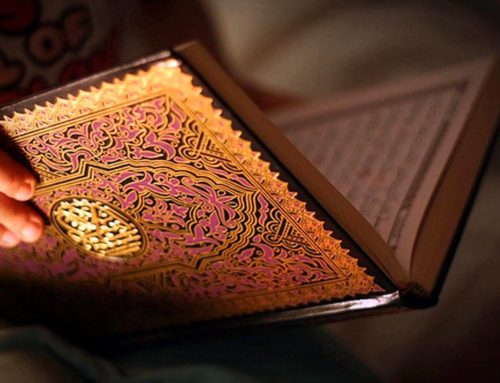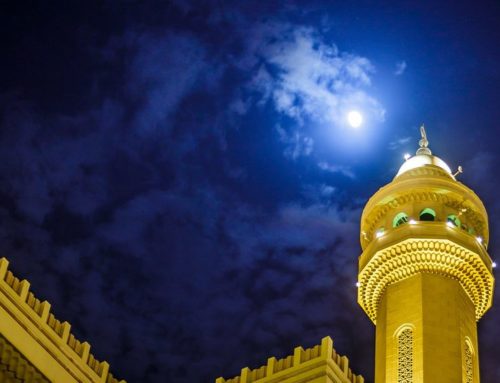Translated by Zameelur Rahman
The Purpose of Man’s Creation
Know that Allah (Exalted is He) created man for His worship.
Thus, Allah (Exalted is He) states in the Noble Qur’an:
“I have not created jinn and humankind but to worship Me.” (Qur’an 51:56)
Meaning, I created jinn and man only for one purpose, which is My worship. The original purpose of man’s life and the original purpose of his coming into this world and residing in the world is that he worships Allah (Magnificent is His Glory). [1]‘Allamah Shabbir Ahmad al-‘Uthmani wrote in his commentary of Sahih Muslim: “Indeed the single purpose of the creation of existence with all its constituent parts is worship alone. All that is … Continue reading
Are not Angels Sufficient for Worship?
If this question arises in one’s mind, that Allah (Exalted is He) had already created Angels previously for this purpose, so what need is there now to create another creation, meaning mankind? The answer to this is that although Angels were created for the purpose of worship, they were created in such a fashion that by their nature they were compelled to worship, because only the substance of worship was placed in their innate natures. Besides worship, the substance of sin, disobedience and rebellion were not placed in them. However, humankind were created in such a fashion that the substance of disobedience was also placed within them, the substance of sin was also placed within them, and thereafter, they were given the command to worship. This is why it is easy for Angels to worship. But within people there are desires, emotions, temptations, and needs, and incitements to sin, and after this they were given the command to save themselves from those inclinations to sin and to control those urges and suppress those desires and worship Allah (Exalted is He).
Two Types of Worship (‘ibadah)
Here, another matter ought to be understood, because of not understanding which, people are often led astray. That is, from one perspective it can be said that every act of a believer is worship. Meaning, if the intention of the believer is correct, and his methods are correct, and he passes his life in accordance with the Sunnah, then his eating will also be worship, his sleep will also be worship, his to-ing and fro-ing will also be worship, his work will also be worship, his playfulness with his wife and children will also be worship. Now, the question arises that in the same way that all these acts are worship for a believer, Salah is equally worship, so what then is the distinction between these two types of worship? The difference between these two [types of worship] should be understood well, and because of not understanding this difference, some people have been led astray.
The First Type: Intrinsic Worship
The difference between these two types of worship is that one category of actions are those that are intrinsically worship, and have no other purpose besides servitude to Allah (Exalted is He), and those actions were only instituted for servitude to Allah (Exalted is He), like Salah. The purpose of Salah is only servitude to Allah (Exalted is He), that the slave by means of it worships Allah (Exalted is He) and bows his head before Allah (Exalted is He). This Salah has no other purpose or objective. This is why Salah is original and intrinsic worship. The same is the case with fasting, zakat, dhikr, recitation [of the Qur’an], supplication (du‘a), Hajj, and ‘umrah. All these actions are such that they were all instituted only for the purpose of worship, and they have no other objective or purpose. These are categorised as “intrinsic worship.”
The Second Type: Extrinsic Worship
In contrast to them are some activities which originally have another purpose like fulfilling worldly needs and desires. But Allah (Exalted is He), by His grace, said to the believer that if you fulfil your worldly activities with a good intention, within My prescribed limits, and in accordance with the Sunnah of My Noble Prophet (Allah bless him and grant him peace), then I will give you such reward for those acts that I give to the first category [of worship]. This is why these are not intrinsic worship, but are extrinsic worship. This is the second category of worship. [2]Worship (‘ibadah) literally refers to the first category or “intrinsic worship,” while it is used for the second category or “extrinsic worship” only metaphorically. Mawlana Zakariyya … Continue reading
Halal Earning is Extrinsic Worship
For example, if in order to fulfil the rights of one’s wife and children, while staying within the limited boundaries [of the Shari‘ah], you earn a living, and you earn it with the intention that my wife’s rights are from my responsibilities, and my children’s rights are from my responsibilities, and my body’s rights are from my responsibilities, and in order to fulfil these rights, I am earning a living, then this earning will also become worship of Allah (Exalted is He). However, earning a living was not originally instituted for worship, which is why it is not intrinsic worship, but extrinsic.
Intrinsic Worship is Superior
By this explanation is understood that those types of worship that are intrinsic worship are manifestly superior to that worship which is extrinsically worship, and it has a higher rank. This is why, that which Allah (Exalted is He) said, that I only created jinn and humankind for My worship, its intent is worship of the first category, which is intrinsic worship. The second category of worship, that is extrinsic worship, is not intended.
The Incident of a Doctor
Some days ago, a woman asked me about her husband who is a doctor.
[She said:] He keeps his clinic open and sees his patients, and when the time of Salah comes, he does not offer Salah at its time, and when he closes the clinic at night and returns home, he prays three Salahs at one time; so I asked him, why do you read all your Salahs at one time once you have come home, and why do you not pray there in the clinic so you do not have to make them up? In response, the husband said that the treatment I give to patients is work in service of creation, and service of creation is a great act of worship, and it relates to the rights of slaves, which is why I give it preference, and since offering Salah is my personal affair, this is why I pray them all at once when I reach home.
The woman asked me: What answer can I give to this reasoning of my husband?
Salah is not Forgiven in any Circumstance
In reality, her husband had a faulty understanding here because of not appreciating the difference in the grades that exist between the two types of worship. This difference is that the worship of Salah is intrinsic, regarding which Allah (Exalted is He) stated that even if you are in the battlefield, and the enemy is facing you, even then you must pray. Although some ease has been created in the method of Salah in such a circumstance, yet the obligation of Salah at this time is not waived. Thus, Allah (Exalted is He) has decreed the following verdict with respect to Salah : “Surely, Salah is an obligation on the believers at fixed times.” (4:103)
Now, ponder: Which act is greater than jihad? Yet this command has been issued, that even [while engaging] in jihad, Salah must be offered at its [set] time.
Service of Creation is Worship of the Second Category
Such that even if a person was to have fallen ill, and was so ill that he is unable to perform any action, even in this situation, his ruling is that he must not leave Salah, and he must offer Salah, but some allowance has been given, that if you are unable to pray standing you can pray sitting, and if you are unable to pray sitting you can pray lying down while gesturing; if you are unable to perform wudu, do tayammum, but you must certainly pray.
Salah has not been forgiven in any circumstance because Salah is intrinsic worship that is desired in itself, and is worship of the first rank. The treatment the doctor offers his patients is service of creation which is also a great act of worship, but is from the second rank of worship, not intrinsic worship. This is why if there is any disparity or opposition between these two types of worship, then in such a situation, that worship which is intrinsic worship will be given priority. Because the doctor did not recognise this distinction between the two types of worship, he was, as a consequence, afflicted by this error.
In Comparison to other Needs Salah is more Important
Ponder! When you are sitting in the clinic to serve creation, at this time you have to get up for other needs, like if there is a need to go to the lavatory or to take a bath, in such a circumstance you will eventually leave the patients and go [to fulfil these needs]. Similarly, if in this time, hunger is felt, and the time for eating comes, will you take a break for eating or not? Since you can pause for those acts, then if the time of Salah comes, what trouble is there if at that time you pause for Salah? And what barrier to the service of creation will be created? While in comparison to other needs, Salah is more important.
In reality, because of not understanding the difference between the two types of worship, this misunderstanding was created. Although in terms of the second category of worship, a believer can make all his acts worship, as if a believer were to work with a good intention and in accordance with the Sunnah, his entire life would be worship, but this is worship of the second rank. Worship of the first rank, Salah, fasting, Hajj, zakat, dhikr of Allah etc. are intrinsic worship of Allah, and in actual fact, mankind was created for this worship.
Mankind is being Tested
Mankind was created for such worship in order to see that if the human being, in whom I [i.e. Allah] have placed various types of desires and urges, I have placed in him inclinations and attractions towards sins, despite all of this, will this human being come towards Me and remember Me, or will he go in the direction of the invitations to sin and will those urges overcome him? It was for this purpose that mankind was created.
Ramzan Kis Tarah Guzaren, pp. 9-16
| ↑1 | ‘Allamah Shabbir Ahmad al-‘Uthmani wrote in his commentary of Sahih Muslim:
“Indeed the single purpose of the creation of existence with all its constituent parts is worship alone. All that is besides this is only incorporated within its foundations, preliminaries, supplements and consequences. For indeed Allah (Exalted is He) only created the heavens and earth and all that is between them for mankind, and He did not create them but for worship. Thus, the material world was only created for us, and we were created for the next world and worship. “As for the first [statement], many [scriptural] texts announce it. He (Great and Glorious is He) said: ‘He created for you all that the earth contains; then He turned to the heavens and made them seven skies’ (2:29); and He said: ‘Allah has subjugated for you what is in the heavens and what is on the earth’ (31:20); and [other verses] besides these from uncountable and innumerable clear statements. “As for the second [statement], the clear text, ‘I have not created jinn and humankind but to worship Me’ (51:56) articulates it. “And indeed Allah combined both meanings in one verse where He said: ‘O people! Worship your Lord who created you and those before you, so that you may become vigilant [of Allah and His commands]. He is the One who made the earth a bed for you, and the sky a roof, and sent down water from the sky, then brought forth with it fruits, as a provision for you. So, do not set up parallels to Allah when you know.’ (2:21-22) “And the verifiers of this subject – as the likes of the teacher of our teacher [Mawlana Qasim Nanotwi] (his secret be sanctified) – strengthened it with proofs and arguments, and produced detailed explanations, so that argumentation and dispute will not reach to it.” (Fath al-Mulhim, 1:454) |
|---|---|
| ↑2 | Worship (‘ibadah) literally refers to the first category or “intrinsic worship,” while it is used for the second category or “extrinsic worship” only metaphorically. Mawlana Zakariyya Kandehlewi explains this in his polemic against Sayyid Abu al-A‘la Mawdudi as follows:
“Even the most substandard student of hadith will certainly be aware of the distinction, that ‘ibadat (rituals/worship) and mu‘amalat (worldly dealings) are two separate things. The books of hadith and fiqh from beginning to end, in their entirety, are full [of indications] that worship and worldly dealings are two separate entities. It is another matter that if in worldly dealings the boundaries of Allah are observed and the pleasure of Allah is kept in view they will bring reward just like worship. And certainly [such reward] will be acquired. And because of this reward, in some texts they are called ‘worship’ as a metaphor. Merely because reward will be attained by means of them, will they now be included within the [primary] meaning of worship, or is it just as the Messenger (Allah bless him and grant him peace) said: ‘One who prepares a fighter in the path of Allah, he has fought, and one who takes responsibility for a fighter over his family, he has fought.’ (Bukhari, Muslim)? Will even one with the least acquaintance with hadith understand from this hadith that assisting a mujahid or taking responsibility for his family is literally jihad? … “’Allamah Munawi wrote: ‘Worship (‘ibadah) is the utmost extent of submission, and it is used in the Shari‘ah for that which has been designated as a symbol of the peak of submission, like Salah and fasting.’ … “I will now turn your attention to a few hadiths by way of example [to show that this is what is intended by ‘worship’]. It was narrated from ‘Ata’ (Allah have mercy on him): I said to ‘A’ishah: ‘Inform me of the most amazing thing that you saw from the Messenger of Allah (Allah bless him and grant him peace).’ She said: ‘All of his affairs were amazing. He came to me at night, and he entered with me under my blanket, and then he said: “Leave me, so I can worship (ata‘abbadu) my Lord,” and then he got up, performed wudu and he stood and offered Salah .’ (Ibn Hibban)…The two shaykhs [Bukhari and Muslim] transmitted from Anas that he said: ‘Three people came to the houses of the wives of the Prophet (Allah bless him and grant him peace) inquiring about the worship (‘ibadah) of the Prophet (Allah bless him and grant him peace), and when they were informed [of his Salah and fasting] it was as though they deemed it less.’ What practices did these noble Sahabah regard as worship? And did not the pure wives understand the correct meaning of worship, since in response to this question they described only the ritual practices of worship?” (Fitnah e Mawdudiyyat, 35 – 39) |






